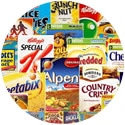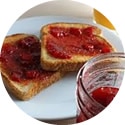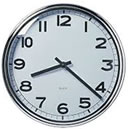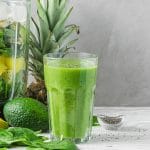Lynda: In my opinion tucking into a highly nutritious breakfast with awareness is crucial for premium health. Through many years of personal and patient experimentation I believe that what and how we choose to ‘break our fast’ can either set us up for a day doused with food cravings, lack of focus, low mood and lethargy or one laced with clear thinking, balanced emotions, balanced blood sugar levels, energy and good digestion.
The following are my top suggestions to consider when deciding whether to indulge in a breakfast fit for a king/queen or one fit for a pauper.
1. Eating Disguised ‘Healthy’ Breakfast Cereals

Let me ask you, do you dislike flavours, textures and eating in general? Then why choose food without soul, those that add little or no nutritional value for your body and mind? Food is fuel for the body, but that does not mean we need to disguise it as garden pellets in premium priced cardboard and quickly funnel it into the gob with a straw.
Highly processed, packaged foods are often rich in toxic chemicals, sugar, inferior carbohydrates, harmful fats and have little or no good quality protein. Want a tired, lack lustre, dull mind and body that struggles to get moving? One that does not comply with your needs and desires, then take the packaged, processed route. If you crave more energy, clearer thinking, a life well lived and dropping dead quickly rather than a life laden with chronic illness and frustration then opt for real food. Food that may take a tiny bit of effort to prepare but fuel that scratches your back and looks after you long term.
Keep it real, stop paying for clever marketing, save your dollars, invest in your health and enjoy what pristine health without illness feels and tastes like… Capish?
2. Adding the Sweet Stuff

When I ask some patients to take the gluten, processed foods and sugar out from their diet, the most common statement expressed is “What the hell will I have for breakfast then?” Why not have a meal that you would have for lunch or dinner for breakfast?
It is not uncommon for me to have a protein source such as a fillet of fish, sardines, mackerel, grass fed lamb, beef etc with vegetables and a healthy fat source. For example sardines with a simple side of avocado, asparagus or spinach. Leftovers from dinner also make a fabulous breakfast option. Last nights grass fed lamb mince and veg casserole makes me a satisfied woman indeed. Change your perception and you’ll have a broader range of fabulous, healthy foods to choose from. It really is that simple. Think outside of that sweet-box, open your palate and start playing with variety.
Does a piece of toast with strawberry jam keep you satiated and focused until lunch time? I didn’t think so. A meal made up like this, with a hefty dose of inferior carbohydrates, sugar, no protein or fat will not provide the fuel needed to support healthy brain function, stabilize your blood sugar levels and will certainly have you ravenous within the next couple of hours. Put simply your attention and focus will be weak, your mood may be low, your hunger rife and energy unpredictable. Now wouldn’t you rather use that brain fuel on more important things than thinking about how you can satiate your hunger. That to-do-list will never get done now will it? Stabilize your blood sugar with well rounded meal choices and therefore stabilize your mood, energy and cravings.
3. No breakfast

Missing breakfast leads to unbalanced cravings. Those who skip breakfast tend to consume 40% more sugar during the day and 45% less vegetables. Cravings, high sugar and lack of nutrients will compromise your overall health. You may experience low mood, a foggy mind, poor memory, concentration, weight gain, morbid obesity, digestive issues and chronic, long term illness.
Studies have shown that skipping breakfast causes swings in blood sugar. This can affect our body’s ability to burn fat for energy and can certainly increase your risk of diabetes. Furthermore it decreases your sensitivity to sugar level rises at your next meal. Which means you would need to make sure that you are consuming low glycaemic index foods at your next meal. Those who eat breakfast have a much lower rise in glucose levels after meals which protects them from heart disease and diabetes and supports fat loss also.
The body thrives on good nutrition soon after you get up because it has essentially fasted during the night and your glycogen stores are very low. Choose your food wisely. Avoid foods that do not digest and absorb easily, such as processed carbohydrates and sugar. Meals that are rich in fibre, fat and moderate protein are best. Organic eggs, avocado and sweet potato is one example or a smoothie with protein (180 nutrition protein powder is great for this), avocado, coconut water, cacao and berries are great options and will give your body the ammunition it needs to control hunger and cravings.
Food choices like these and having breakfast reverse the bodies desire to store fat because it helps to keep your sugar levels from spiking. Instead the body will use fat for energy. You are better able to manage your health, fitness and weight, your blood sugar can be controlled and you increase the level of your metabolic hormone, incretin which positively impacts your health by decreasing blood glucose levels.
4. Eating on the run

The process of chewing is an extremely important part of digestion. Chewing allows big particles of food to be broken down into smaller particles that your body can absorb and use. To shirk on proper chewing is no different to starting a game of rugby without the kick off. Gasp! I shudder at the thought? The entire game would be cursed. Minimal chew means cursed digestion and elimination.
Foods that are not broken down well enter the blood stream and can cause a wide range of health problems. These undigested particles can also feed harmful bacteria and fungi. Your body retains much more nutrients if you chew more and less is lost.
Chewing slowly will help you maintain a healthy weight. Your brain will have enough time (generally around 20 minutes) to communicate with the stomach that it is full. As a result you are less likely to over-consume and have more control over your portion sizes.
Taking the time to chew your food properly improves your digestion in many ways. Your saliva contains digestive enzymes, such as lingual lipase which helps break down fats. Exposing the food you eat to these enzymes support the digestive processes in your stomach and small intestine. Saliva also lubricates food which makes its passage through your esophagus easier. The process of chewing predigests and liquefies your food into smaller particles, making it easier to digest for use in your body.
Improperly chewed foods require a lot of energy to be broken down and is quite demanding on the body. Large particles of improperly chewed food may remain undigested when it enters your intestines. These particles will putrefy (rot) and lead to a host of digestive issues such as bloating, gas, constipation, diarrhoea, bad breath, pain and cramping.
Just the simple act of spending an extra 5 minutes when eating your meal can make a big difference.
In summary, if you would like to welcome more energy, vitality and overall good health into your life I suggest breaking your fast with a highly nutritious meal and enjoying every morsel for at least a month. Reap the rewards and no doubt you’ll create a new habit that your body and mind will thank you for.

Lynda specialises in detoxification and weight loss. She has extensive experience in running healthy, effective and sustainable weight loss programs and has expertise in investigating and treating the underlying causes of weight gain and metabolic problems.
If you would like to book a consultation with Lynda, CLICK HERE






